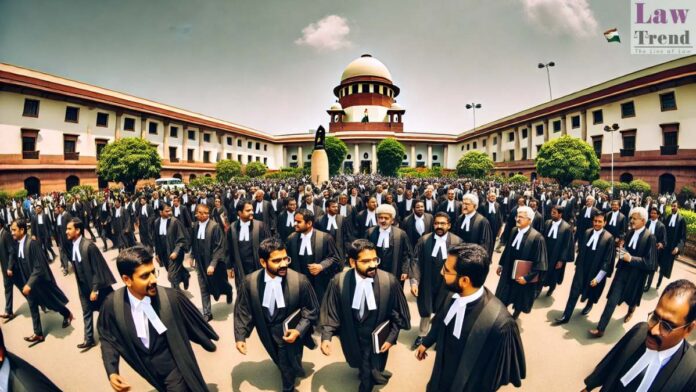In a decisive ruling aimed at ensuring the smooth functioning of courts, the Supreme Court of India, on December 20, 2024, barred Bar Associations in Uttar Pradesh from engaging in strikes or abstentions from work. The judgment, delivered by a bench comprising Justice Surya Kant and Justice Ujjal Bhuyan in the case Faizabad Bar Association
To Read More Please Subscribe to VIP Membership for Unlimited Access to All the Articles, Download Available Copies of Judgments/Order, Acess to Central/State Bare Acts, Advertisement Free Content, Access to More than 4000 Legal Drafts( Readymade Editable Formats of Suits, Petitions, Writs, Legal Notices, Divorce Petitions, 138 Notices, Bail Applications etc.) in Hindi and English.




